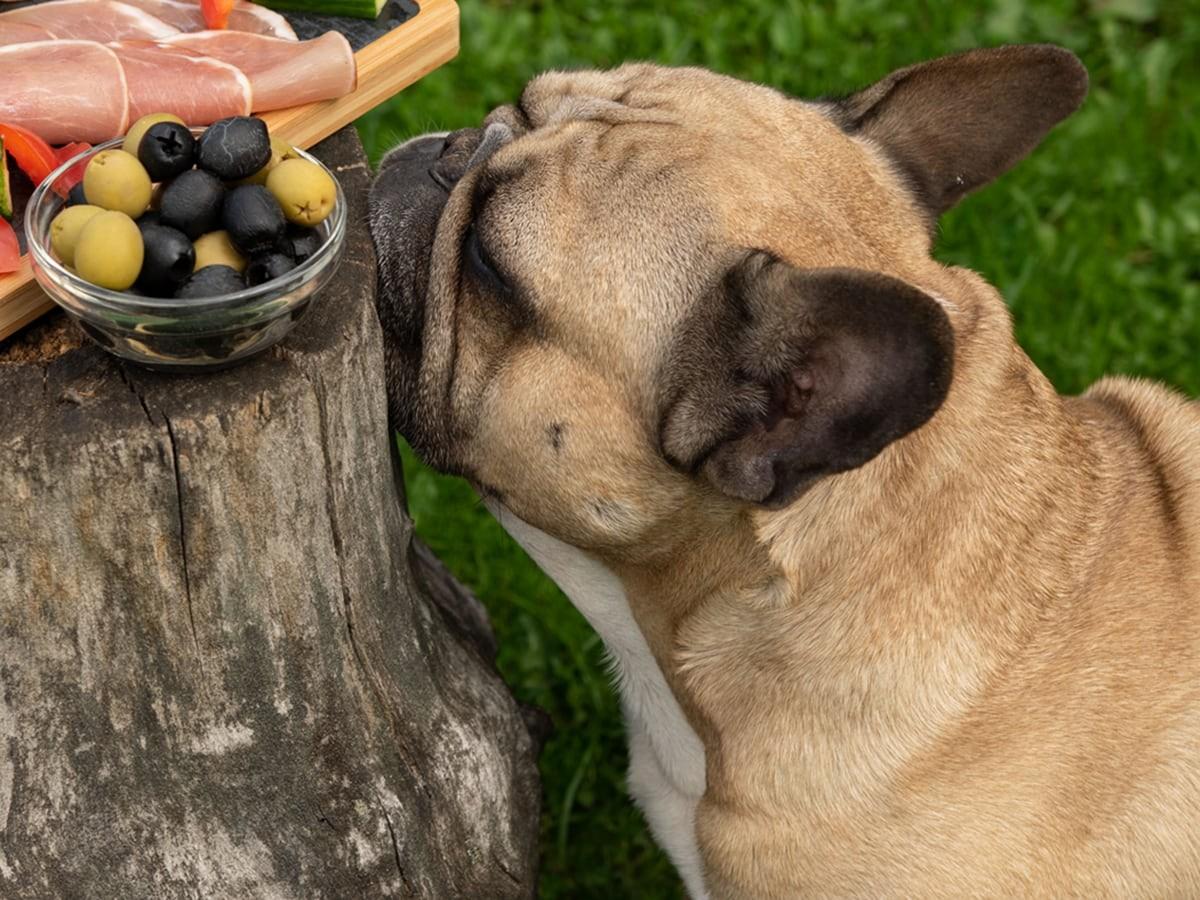Are you curious if you can share those tasty olives from your Mediterranean salad with your furry friend? The answer is yes, dogs can eat olives in moderation. Olives are not toxic to dogs and can even offer some health benefits, but it's important to understand the types of olives that are safe, how to prepare them, and the potential risks involved.
Are Olives Safe for Dogs?
In general, plain, unsalted olives are safe for dogs to eat in moderation. They contain healthy fats, fiber, and antioxidants that can benefit your dog's overall health. However, there are some precautions to take when feeding olives to your dog:1
Remove the Pit: Olive pits can be a choking hazard or cause intestinal blockages in dogs. Always remove the pit before offering an olive to your dog.
Avoid Seasoned or Stuffed Olives: Many olives are seasoned with garlic, onion, or other spices that can be harmful to dogs. Stuffed olives may contain ingredients like cheese that are high in fat and could cause digestive upset.
Limit Intake: Olives are high in fat and sodium, so they should only be given as an occasional dog treat. Too many olives can lead to weight gain in dogs.
The Nutritional Value of Olives for Dogs
Olives offer several nutrients that can be beneficial for your dog's health, including:1
Healthy Fats: Olives are rich in monounsaturated fats, which can help lower cholesterol and reduce inflammation.
Fiber: Fiber promotes healthy digestion and can help regulate bowel movements.
Antioxidants: Olives contain antioxidants like vitamin E and polyphenols, which can help protect cells from damage and boost the immune system.
Potential Risks of Feeding Olives to Dogs
While olives are generally safe for dogs, there are a few potential risks to be aware of:2
High-Fat Content: Too many olives can lead to weight gain or pancreatitis, especially in dogs prone to these conditions.
High Sodium Content: Excessive sodium intake can cause dehydration or electrolyte imbalances in dogs.
Gastrointestinal Upset: Some dogs may experience diarrhea or vomiting after eating olives, especially if they eat too many.
Which Types of Olives Are Safe for Dogs?
Plain, Unsalted Green Olives: These are the safest option for dogs as they are the least processed and contain the lowest amount of sodium.
Plain, Unsalted Black Olives: These are also safe for dogs, but they may be slightly higher in sodium than green olives.
Avoid: Pickled olives, seasoned olives, stuffed olives, and olives in oil, as these often contain high levels of sodium and other potentially harmful ingredients.
Are Olives Toxic to Dogs?
No, olives are not toxic to dogs. The flesh of the olive is safe for dogs to eat, but the pit should be removed.
What Happens if My Dog Eats an Olive Pit?
If your dog accidentally swallows an olive pit, there's a risk of choking or intestinal blockage. Monitor your dog for signs of difficulty breathing, vomiting, constipation, or abdominal pain. If you notice any of these symptoms, contact your veterinarian immediately.
Moderation and Preparation Tips
Start Slowly: Introduce olives to your dog gradually, offering a small piece at a time to monitor their reaction.
Remove the Pit: Always remove the pit before giving an olive to your dog.
Plain is Best: Choose plain, unsalted olives without any added seasonings or stuffings.
Moderation is Key: Only give your dog olives as an occasional treat, they should not be a regular part of your dog's diet.
Expert Insights From Spot
While sharing our favorite foods with our pets can be tempting, it's important to remember that not all human foods are safe for dogs. Spot's internal data shows that pet insurance claims for dietary indiscretions average $642,* underscoring the importance of caution and research before sharing snacks with our pets.
Key Takeaways
Olives can be a safe and healthy dog treat when given in moderation and prepared properly. Remember always to remove the pit, choose plain, unsalted olives, and monitor your dog for adverse reactions. Consult your veterinarian if you have any concerns about adding olives to your dog's diet.

I've had the privilege of immersing myself in the realm of pet safety. As the owner of an energetic mini golden doodle, I know just how stressful being a pet owner can be. I am dedicated to ensuring our beloved pets enjoy a life brimming with good health.
*Jan 2019 to Aug 2024 Spot Pet Insurance Services, LLC claims data.
Burke, Anna. "Can Dogs Eat Olives?" American Kennel Club, 07 Mar. 2025, https://www.akc.org/expert-advice/nutrition/can-dogs-eat-olives/.
Saylor, April. "Can Dogs Eat Olives?" PetMD, 18 Jul. 2023, https://www.petmd.com/dog/nutrition/can-dogs-eat-olives.
Stenhouse, Emma. "Can Dogs Eat Olives?" The Dog People by Rover, 11 Feb. 2025, https://www.rover.com/blog/can-my-dog-eat-olives/.
The information presented in this article is for educational and informational purposes only and does not constitute or substitute for the advice of your veterinarian.












